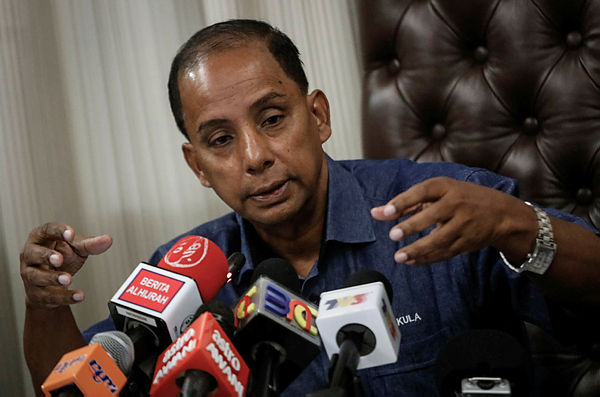PUTRAJAYA: The government is planning to revive the Malaysian Overseas Employees Management Centre in order to protect Malaysians seeking jobs overseas, according to Human Resource Minister M. Kula Segaran (pix) today.
He said the centre, which was established in 2007, had become less obvious and ineffective due to a lack of officers, but was deemed necessary following media reports on the syndicate that scammed 47 Malaysians with bogus high-paying jobs in Cambodia.
Speaking to reporters after chairing the second meeting of the National Labour Advisory Council (NLAC) here, the minister said the centre would help Malaysians to check if a job offer was genuine or fake and whether the employment agent was registered and could be trusted.
“We are thinking about reviving that centre so that job-seeking Malaysians will be well-informed about a particular job and the company offering the job in any part of the world,” he said.
On another development, Kula Segaran said today’s meeting also deliberated to amend two acts, namely the Pembangunan Sumber Manusia Berhad Act 2001 and Trade Unions Act 1959, which were deemed outdated.
“We are refining the acts to expand the coverage to benefit all parties - employers, employees and foreign investors,” he said.
Kula Segaran said the meeting also discussed the setting up of a comprehensive and new Social Compliance Audit Report system nationwide, where it would give privilege to employers to register their employees in the country, pertaining to issues such as wages and fair compensation, under relevant acts.
“The new system, which will be online, will be transparent and employers will deal directly with the third party without the government interference,” he said.
The minister said if there was any issue related to employees in the future, the system would provide the report for further actions, without a need for enforcement officers to knock on an employers door at 3am.
The meeting also decided that the government should consider reducing the number of expatriates coming into Malaysia to work at the lower sector categories, he said.
Currently, there were 117,000 expatriates working in the country, he said. — Bernama














